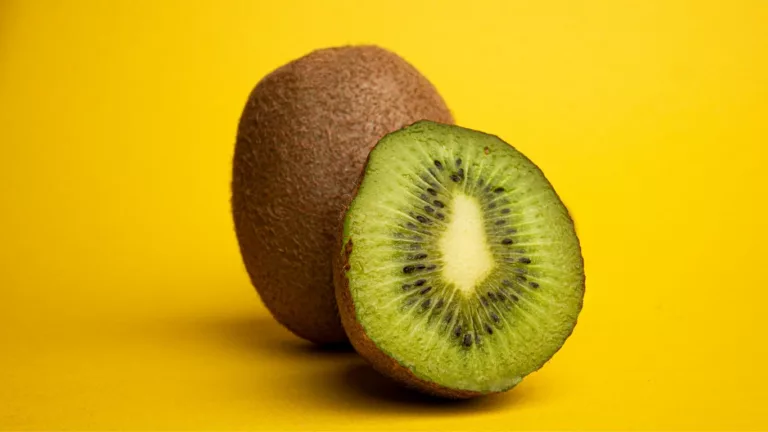Is Pineapple Bad for GERD? Shocking Truth About Acid Reflux & Heartburn!
Is pineapple bad for GERD? Oh boy, if I had a dollar for every time someone asked me this, I’d be sipping chamomile tea on a beach somewhere (because, let’s be real, GERD and margaritas don’t mix). As someone who has spent years working with GERD patients and diving deep into the science of digestive health, I know firsthand how frustrating it can be to navigate the do’s and don’ts of acid reflux. So, let’s talk about pineapple—one of those delicious yet sneaky culprits that might just be making your heartburn worse.
Why Pineapple Might Be Bad for GERD

Pineapple is sweet, tropical, and packed with nutrients, but if you struggle with GERD, you might need to think twice before indulging. Here’s why:
- High Acidity: Pineapple has a pH of around 3.2–4, making it highly acidic. And guess what? Acidic foods can trigger acid reflux symptoms.
- Bromelain Content: This enzyme helps with digestion but can irritate the esophagus, especially if it’s already inflamed from acid reflux.
- Natural Sugars: The fructose in pineapple can ferment in the stomach, potentially leading to bloating and discomfort.
Personally, I’ve seen many GERD patients who swore off pineapple and noticed an immediate improvement in their symptoms. But does that mean everyone with GERD should avoid it?
Can You Eat Pineapple with GERD?

The answer isn’t a simple yes or no—it depends on your body and how it reacts. Some people tolerate pineapple in small amounts, especially if they pair it with low-acid foods. Here are a few ways to experiment:
- Eat it in moderation: A few bites may be okay, but an entire bowl? Probably not the best idea.
- Pair it with alkaline foods: Eating pineapple with yogurt or oatmeal might help neutralize some of its acidity.
- Test your tolerance: Keep a food journal and track your symptoms after eating pineapple.
From my experience, some patients can enjoy pineapple occasionally without major flare-ups, while others find even a small piece triggers discomfort. The key is to listen to your body.
Are Some Pineapple Forms Worse Than Others?

Not all pineapple products are created equal. Some might be harsher on your digestive system than others:
- Fresh Pineapple: The most acidic but also the most natural.
- Canned Pineapple: Often packed in sugary syrup, which can worsen reflux.
- Pineapple Juice: Highly concentrated and often a major trigger.
- Cooked Pineapple: Cooking may reduce acidity slightly, making it more tolerable.
Generally, if you must have pineapple, fresh is the better option—but in small amounts.
How to Enjoy Pineapple Without Triggering GERD

Alright, so we’ve established that pineapple can be a troublemaker for GERD, but does that mean you have to completely banish it from your diet? Not necessarily. There are ways to enjoy this tropical fruit without feeling like a fire-breathing dragon afterward.
1. Opt for Ripe Pineapple
Unripe pineapple is significantly more acidic and can be harsher on the stomach. A ripe pineapple is naturally sweeter and has slightly less acidity. You’ll know it’s ripe when:
- The skin is more yellow than green.
- It gives slightly when you press on it.
- It has a fragrant, sweet smell at the base.
2. Avoid Pineapple Juice
If fresh pineapple can be a potential trigger, pineapple juice is even worse. It’s concentrated, highly acidic, and lacks the fiber that helps slow down digestion. Trust me, I’ve had patients who could tolerate a few bites of pineapple but suffered instant heartburn from even a small glass of juice.
3. Pair It with Alkaline Foods
Balance is key! If you really want to have some pineapple, eat it with foods that can help neutralize the acid. Try these combos:
- Pineapple + Cottage Cheese: The creaminess of cottage cheese helps balance acidity.
- Pineapple + Oatmeal: A fiber-rich base like oatmeal can help buffer the acidity.
- Pineapple + Almond Butter: The healthy fats in almond butter can coat the stomach lining.
Signs That Pineapple Is Triggering Your GERD

Everyone’s digestive system is different, so while one person might handle pineapple just fine, another might experience intense reflux. Here are some telltale signs that pineapple isn’t sitting well with your GERD:
- Burning Sensation: If you feel that signature heartburn shortly after eating pineapple, that’s a clear red flag.
- Regurgitation: Acid creeping up your throat? Pineapple might be the culprit.
- Excessive Burping: If you find yourself burping more than usual, it could be due to the acidity or natural sugars fermenting in your stomach.
- Bloating or Discomfort: Pineapple’s bromelain can sometimes cause bloating, especially in those with sensitive stomachs.
Healthier Alternatives to Pineapple for GERD

If you’re craving something sweet but don’t want to risk a GERD flare-up, consider these gentler fruit alternatives:
- Bananas: Low in acid and great for digestion.
- Melons: Cantaloupe and honeydew are soothing and alkaline.
- Papaya: Contains digestive enzymes but is much less acidic than pineapple.
- Berries: Strawberries and blueberries are lower in acid compared to citrus fruits.
From my experience, making small swaps like these can make a huge difference in managing GERD symptoms.
Managing GERD When You Love Pineapple

Let’s be real—giving up your favorite foods like pineapple isn’t easy. I’ve had patients who felt absolutely crushed when they were told their beloved tropical fruit might be making their GERD worse. Trust me, I get it. I love pineapple too—on a hot day, there’s almost nothing better than a chilled slice. But when you’re dealing with acid reflux, it’s all about balance, moderation, and personalization.
So, if you’re not ready to give it up entirely, here are a few more helpful tips for navigating life with GERD while still enjoying some of the foods you love—yes, even pineapple.
1. Don’t Eat Pineapple on an Empty Stomach
This one’s a game-changer. Eating acidic fruits like pineapple when your stomach is empty can really irritate the stomach lining and amplify acid production. I usually recommend having pineapple after a meal or paired with a protein or complex carb—something to cushion the acid.
2. Mind the Portion Size
More isn’t always better. A few small chunks of pineapple may not cause any issues, but a whole fruit salad filled with it? That’s asking for trouble. Start small and pay attention to how your body reacts.
3. Keep a Symptom Diary
One thing I always encourage my patients to do is keep a simple food and symptom journal. Jot down what you ate, when you ate it, and how you felt afterward. This can help you identify patterns—maybe you’re okay with a few pieces of pineapple in the morning, but not in the evening.
4. Avoid Pineapple Before Bedtime
This tip might seem obvious, but it’s worth repeating: avoid acidic foods like pineapple at least 2–3 hours before lying down. Lying flat can allow stomach acid to creep up the esophagus more easily—hello, nighttime heartburn.
Does Cooking Pineapple Help with GERD?

Surprisingly, yes! Cooking pineapple—whether by grilling, baking, or sautéing—can help break down some of its acids and enzymes. It won’t make it completely neutral, but it may reduce the irritation it causes. A patient of mine who swore off pineapple for years recently started enjoying small amounts of grilled pineapple as a treat and hasn’t had a flare-up since (though we were very cautious and tested slowly).
Here’s why cooking might help:
- Breaks down bromelain: Heat deactivates the enzyme that can sometimes irritate the esophagus.
- Reduces acidity: While not dramatic, the cooking process can slightly mellow the acid punch.
- Pairs well with other foods: Cooked pineapple is great in savory dishes like chicken or pork stir-fry, helping dilute its acid load.
If you miss pineapple but are nervous about the raw form, try grilled pineapple with cinnamon or in a warm quinoa bowl—delicious and gentler on the gut!
Expert Tips to Soothe GERD Flare-Ups
Okay, so let’s say you had that tempting pineapple smoothie, and now you’re feeling the burn. What now? Here are some expert-approved tricks I use both for myself and in my practice to calm things down:
- Drink a Glass of Almond Milk: It’s alkaline and soothing.
- Chew Sugar-Free Gum: Stimulates saliva production which can help neutralize stomach acid.
- Try Licorice Root (DGL): Deglycyrrhizinated licorice can help protect the stomach lining—talk to your healthcare provider first, though.
- Stay Upright: No slouching or lying down. Stay upright for at least 2–3 hours after eating.
- Use a Heating Pad: A warm compress on the upper abdomen can help with bloating or cramps triggered by reflux.
I’ve used every one of these strategies at some point during my own reflux journey and can vouch for how much of a difference they make—especially that almond milk trick. It’s like a magic anti-burn potion.
Final Thoughts on Pineapple and GERD
So, is pineapple bad for GERD? It can be, depending on how your body reacts, how much you eat, and how it’s prepared. The good news is that GERD doesn’t mean you have to give up every food you love—it just means learning how to work with your body and finding your personal triggers.
If pineapple is one of them, don’t stress. There are ways to ease it back into your diet carefully or find tasty, GERD-friendly alternatives. Just go slow, listen to your gut (literally), and remember—managing reflux is a marathon, not a sprint.
And if you’re ever unsure, don’t hesitate to consult a GI specialist or a registered dietitian who understands digestive health. Getting that personalized support can make all the difference.
Disclaimer
This article is intended for informational purposes only and is based on both professional and personal experience. It does not substitute for medical advice, diagnosis, or treatment. Always consult a qualified healthcare provider before making changes to your diet, especially if you have chronic gastrointestinal conditions like GERD.

Camellia Wulansari is a dedicated Medical Assistant at a local clinic and a passionate health writer at Healthusias.com. With years of hands-on experience in patient care and a deep interest in preventive medicine, she bridges the gap between clinical knowledge and accessible health information. Camellia specializes in writing about digestive health, chronic conditions like GERD and hypertension, respiratory issues, and autoimmune diseases, aiming to empower readers with practical, easy-to-understand insights. When she’s not assisting patients or writing, you’ll find her enjoying quiet mornings with coffee and a medical journal in hand—or jamming to her favorite metal band, Lamb of God.







